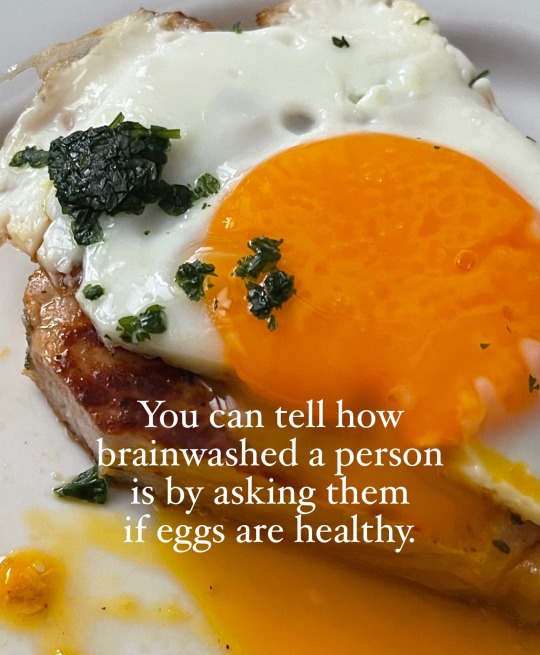#Ancestral Foods
Explore tagged Tumblr posts
Text
Guide to Life-Sustaining Nutrients: Vitamin A
Vitamin A's critical role in development, aging, intelligence, beauty, vision, hormones, sexuality, and immunity. The first in my series of Guides to the Life-Sustaining Nutrients.
The following begins my series, A Basic Guide to the Life-Sustaining Nutrients, a tentative multimedia project that will be almost fully Patreon-exclusive. Today’s Vitamin A entry serves as a preview of what the project entails. I hope you find value here, always keep learning, and support me on Patreon for much more to come. Patreon A few generalizable concepts coupled with their mechanisms…

View On WordPress
#Accutane#allopregnanolone#Ancestral Foods#andrew hall cutler#andy cutler protocol#anhedonia dopamine#anxiety#biohacker#biohacking#boost immune system naturally#Chelation Mercury#chris masterjohn#Circadian Clock Genes#circadian rhythm#Covid-19 anosmia vitamin a#covid19 smell cure vitamins#danny roddy#dementia#depression#dopamine cofactors#Dr. Garrett Smith#evidence based medicine#georgi dinkov#Grant Genereux&039;s Theory Of Vitamin A Toxicity#grimhood#hypothyroid vitamins#Improve Eyesight#jack kruse#longecity#Mental Health and Vitamins
5 notes
·
View notes
Text
#indigenous#native american#apache#ancestors#ancestral knowledge#food#foodways#indigenous food#unci maka#grandmother#elders
85 notes
·
View notes
Text

#ancestral diet#carnivore diet#diet#eggs#ex vegan#food#former vegan#fuelyourbody#girlblogging#healing#health#how i lost 20kg lol#low carb#meat#mine#natural human diet#nutrition#steak and eggs#superfood#veganism
43 notes
·
View notes
Text
rosas com mel fermentado
Olá, hoje eu quero mostrar uma receita com dois ingredientes que eu amo, rosas e mel.

Sabia que rosas saudáveis podem ser consumidas? Aqui em casa tenho alguns pés enormes e quase sempre acabo não tendo ideias pra fazer algo, então fazer rosas fermentadas para adicionar em bolos, chás, iogurte, pão é uma delícia.

- Receita
• rosas do jardim
•mel natural
🧺 Em um potinho esterelizado, acrescente as rosas devidamente higienizada, em seguida acrescente o mel até cobrir deixando sempre um espaço no vídro. em seguida guarde em um local arejado durante uns 4 dias sempre chacoalhando até surgir bolinhas e ficar ativo.

fazer fermentados com conta própria, me trás calma e me deixa mais conectada com o passado. Além de ser super saudável para nosso corpo, mente e flora intestinal.
Lembrando que não se deve consumir rosas de floriculturas ou compradas em mercados. Sempre consumam rosas devidamente orgânicas por serem mais saudáveis e que não tenham agrotóxicos.


#cottagecore#levain#plants#vidamanual#rosas#fermentation#fermented foods#country life#country living#farm living#farmlife#ancestral#crochê#plantas
11 notes
·
View notes
Text

Extremely proud of this stuffed polenta I made tonight
8 notes
·
View notes
Text
it's the miserable time of summer when I foolishly eat a few unripe tree fruits because waiting for harvest time is making me insane and I think hm maybe it won't be bitter and rock hard and acid in my mouth, because I'm an idiot
#traditionally this is the time of year when people would really starve#because youve run out of preserved food from last year and nothing has grown yet#i feel ancestral anxiety when i look at the unripe figs and then go home and eat thirty cheetos#blog
45 notes
·
View notes
Text
Doing ancestral healing is finding a specific food/drink that is traditional in that region and it becoming your comfort thing.
#joker talks#ancestral healing#this is specifically about kefir and it helping me calm the fuck down#bro i just like drinking it i didnt know it possibly CALMING MY G GRANDPARENTS#foods#food
2 notes
·
View notes
Text
Still thinking about last Purim when my dad tasted my chicken and told me “you cook just like nanny Gertrude did”. Nanny Gertrude died long before I was born, and I don’t have any of her recipes (if she even left a written record). I didn’t learn to cook from anyone on that side of the family. I just apparently have such strong Ashkenazi Bubbe energy that I can recreate the recipes of my long-dead ancestors while going off of nothing but schmaltz and intuition.
41 notes
·
View notes
Text
Excerpt:
Beer archaeologists are peering back millennia to recreate brews from ancient Egypt, Greece and Rome using ancient methods and ingredients.
Some of the most interesting beers made in recent years provide a drinkable window into human history. These so-called "rebrews" of age-old ales were once savoured in places ranging from Ancient Egypt and Greece to Celtic and Viking Europe. Their drinkers liked a choice too, with 5,000-year-old Babylonian-carved stone tablets depicting recipes for nearly 20 different barley-based beers.
"Recreating ancient beers allows us to touch and taste history. It humanises our ancestors and makes us realise that we are not so different," says Travis Rupp, who combines teaching Classics and Anthropology at the University of Colorado with his past professional brewing experience at the Boulder-based producer Avery Brewing. It's a combination of skills that led him to create a line of archaic rebrews earning him the tag of The Beer Archaeologist, which is now the name of his business. /endquote
#ancient history#ancient culture#ancient food and drink#ancient drink#history#ancient egypt#ancient greece#celtic#viking#brewery#alcohol#cw alcohol#cw: alcohol#tw alcohol#tw: alcohol#archaeology#human history#ancient beer#beer#ancestors#ancestor work#ancestral history#classics#anthropology#classical studies#ancient rebrew#reconstructionism#beer-making#Ales of Antiquity#antiquity
3 notes
·
View notes
Text
eating highly ethnically specific food at the rural family function and being like "is this liver?" it's probably not liver, they say. eat it. it's liver.
#organ meats are always the weird ancestral foods i never tried#and its always liver specifically#personal#also why dont you know what it is youre EATING it as we speak
3 notes
·
View notes
Text
Don't you love when something is nagging you to make a recipe, you let the Spirits lead you in the process, and afterwards when you search key words looking for something similar online, it turns out It's not only definitely A Thing but that you also have ancestral ties to it? because I do.
#I will always say#Ancestral foods and drinks are the BEST medicine#your ancestral body spent thousands of years adapting to certain environments and to the best foods and drinks to nourish it in them#why am I surprised that They would drop a recipe in my lap when it's to fix something that I'm constantly complaining about lol#my notes#there's nothing more joy enducing than having your practice be historically verified istg
2 notes
·
View notes
Text

#ancestral diet#animal based diet#bacon#breakfast#carbs#carnivore#carnivores for animal rights#cholesterol does not cause heart disease#diet#eggs#ex vegan#fitness#food#gut health#health#holistic health#keto#lion diet#low carb#low carb high fat#meat#medicine#nutrition#organic#politics#real food#seed oils#superfood#vegan#veganism
14 notes
·
View notes
Text
On behalf of the Mediterranean in general, and Greece in particular, we will feed you. It is not optional. You might even take leftovers with you. On visits home, while I was studying abroad, part of my suitcase space was dedicated to snacks for my flatmates.



I hate how white people invented the we don’t owe each other anything mindset
#and by snacks I mean#on one occasion#an entire tray of homemade lasagne#on the opposite side#and this might be a me thing#I will not feel comfortable accepting food#by someone I don't like/don't feel sufficiently close to#will not feel the ancestral urge to feed them either
75K notes
·
View notes
Text
What I was taught growing up: Wild edible plants and animals were just so naturally abundant that the indigenous people of my area, namely western Washington state, didn't have to develop agriculture and could just easily forage/hunt for all their needs.
The first pebble in what would become a landslide: Native peoples practiced intentional fire, which kept the trees from growing over the camas praire.
The next: PNW native peoples intentionally planted and cultivated forest gardens, and we can still see the increase in biodiversity where these gardens were today.
The next: We have an oak prairie savanna ecosystem that was intentionally maintained via intentional fire (which they were banned from doing for like, 100 years and we're just now starting to do again), and this ecosystem is disappearing as Douglas firs spread, invasive species take over, and land is turned into European-style agricultural systems.
The Land Slide: Actually, the native peoples had a complex agricultural and food processing system that allowed them to meet all their needs throughout the year, including storing food for the long, wet, dark winter. They collected a wide variety of plant foods (along with the salmon, deer, and other animals they hunted), from seaweeds to roots to berries, and they also managed these food systems via not only burning, but pruning, weeding, planting, digging/tilling, selectively harvesting root crops so that smaller ones were left behind to grow and the biggest were left to reseed, and careful harvesting at particular times for each species that both ensured their perennial (!) crops would continue thriving and that harvest occurred at the best time for the best quality food. American settlers were willfully ignorant of the complex agricultural system, because being thus allowed them to claim the land wasn't being used. Native peoples were actively managing the ecosystem to produce their food, in a sustainable manner that increased biodiversity, thus benefiting not only themselves but other species as well.
So that's cool. If you want to read more, I suggest "Ancient Pathways, Ancestral Knowledge: Ethnobotany and Ecological Wisdom of Indigenous Peoples of Northwestern North America" by Nancy J. Turner
60K notes
·
View notes
Text
Rediscovering America's Food Heritage: A Look at "The Lost SuperFoods"
Rediscovering America’s Food Heritage: A Look at “The Lost SuperFoods” In a nation obsessed with the latest diet fads and quick-fix solutions, “The Lost SuperFoods” offers a refreshing return to our roots. Authors Art Rude and Claude Davis explore a fascinating world of forgotten foods, those nutritional powerhouses that sustained our ancestors and hold valuable lessons for modern Americans. This…
#American cuisine#American food history#ancestral diet#ancient foods#Art Rude#back to basics#Claude Davis#cooking#diet#disaster preparedness#emergency food#emergency preparedness plan#food heritage#food preservation#food security#food shortage#foraging#forgotten foods#gardening#health#healthy eating#homesteading#independence#long-term food storage#lost superfoods#native plants#nutrient-dense foods#nutrition#organic gardening#permaculture
0 notes
Text
youtube
The Paleo Diet: Embracing Ancient Wisdom for Modern Health: The Paleo diet, often referred to as the "caveman diet," is a nutritional approach inspired by the eating habits of our ancient ancestors. This dietary philosophy emphasizes whole, unprocessed foods that humans consumed before the advent of agriculture. With its focus on natural ingredients and simplicity, the Paleo diet offers a compelling roadmap to health and wellness in our modern world.
What is the Paleo Diet?
At its core, the Paleo diet seeks to mimic the diet of Paleolithic humans. The central premise is that our bodies are best adapted to the foods available during that era—primarily lean meats, fish, fruits, vegetables, nuts, and seeds. By avoiding processed foods, grains, dairy, and refined sugars, the Paleo diet aims to reduce inflammation, support metabolic health, and promote natural weight management.
Benefits of the Paleo Diet
The Paleo diet boasts a range of potential health benefits, including:
Improved Digestion: Eliminating processed foods and grains can lead to better gut health and reduced digestive discomfort.
Weight Management: By focusing on nutrient-dense, satiating foods, many individuals find it easier to maintain a healthy weight.
Reduced Inflammation: The diet's emphasis on whole, anti-inflammatory foods may help alleviate chronic conditions such as arthritis.
Stable Blood Sugar Levels: By avoiding refined sugars and carbohydrates, the Paleo diet supports balanced energy levels throughout the day.
Enhanced Nutrient Intake: The inclusion of a variety of fruits, vegetables, and high-quality proteins ensures ample vitamins and minerals.
Historical Context: How the Paleo Diet Compares to Modern Dietary Habits
In Paleolithic times, humans relied on hunting and gathering for sustenance, which naturally restricted their diet to unprocessed, nutrient-dense foods. Modern diets, however, are often laden with processed ingredients, refined sugars, and additives. This shift has coincided with a rise in chronic health issues such as obesity, diabetes, and heart disease. By adopting the Paleo diet, individuals aim to return to a simpler way of eating that aligns with human evolution, promoting better overall health.
Scientific Evidence Supporting the Paleo Diet
Several studies have examined the potential benefits of the Paleo diet. Research published in the European Journal of Clinical Nutrition found that following a Paleo diet improved glucose tolerance, reduced blood pressure, and supported weight loss in participants. Another study in the Journal of Internal Medicine highlighted how this dietary approach could reduce systemic inflammation, contributing to better cardiovascular and metabolic health. While more research is needed, these findings suggest that the Paleo diet can positively impact overall wellness.
Common Misconceptions About the Paleo Diet
“The Paleo Diet is Too Restrictive”: While it eliminates certain food groups, the Paleo diet includes a wide array of options, such as lean proteins, fresh produce, and healthy fats. With creativity, meals can be diverse and satisfying.
“It Lacks Variety”: This misconception stems from a misunderstanding of the diet. In reality, the Paleo lifestyle encourages experimentation with various fruits, vegetables, and herbs, making it both versatile and flavorful.
“It’s Not Backed by Science”: As outlined above, scientific studies have validated several health benefits associated with this approach, debunking the myth that it lacks evidence-based support.
Key Foods in the Paleo Diet
Here’s a breakdown of what to include and avoid in a Paleo lifestyle:
Foods to Include:
Lean meats (grass-fed beef, chicken, turkey)
Fish and seafood (salmon, mackerel, shrimp)
Fresh fruits (berries, apples, oranges)
Vegetables (broccoli, spinach, carrots)
Nuts and seeds (almonds, walnuts, chia seeds)
Healthy fats (olive oil, avocado oil, coconut oil)
Foods to Avoid:
Processed foods (chips, candy, packaged meals)
Grains (wheat, rice, oats)
Dairy products (milk, cheese, yogurt)
Legumes (beans, lentils, peanuts)
Refined sugars (sodas, desserts, syrups)
Adopting the Paleo Diet in Modern Life
Transitioning to a Paleo lifestyle doesn’t mean giving up convenience or flavor. Here are a few tips to get started:
Meal Prep: Plan and prepare meals in advance to ensure access to Paleo-friendly options throughout the week.
Experiment with Recipes: Explore Paleo-friendly recipes to add variety and excitement to your diet.
Shop Smart: Focus on fresh, organic produce and sustainably sourced meats.
Listen to Your Body: Everyone’s nutritional needs are different; adapt the diet to suit your lifestyle and health goals.
Is the Paleo Diet Right for You?
While the Paleo diet has garnered praise for its focus on whole, natural foods, it may not be suitable for everyone. Individuals with specific dietary restrictions or health conditions should consult a healthcare provider before making significant changes to their eating habits.
Conclusion
The Paleo diet offers a return to simplicity, encouraging us to embrace the foods that fueled our ancestors. By focusing on unprocessed, nutrient-dense options, this dietary approach promotes a balanced and healthy lifestyle. Whether you’re looking to improve digestion, manage weight, or simply eat cleaner, the Paleo diet provides a versatile framework for achieving your health goals.
#paleo diet#what is the paleo diet#paleo diet benefits#paleo diet foods#paleo lifestyle#paleo recipes#ancestral eating#healthy eating#paleo meal plan#natural diet#clean eating#weight management diet#anti-inflammatory foods#whole foods diet#paleo for beginners.#Youtube
0 notes